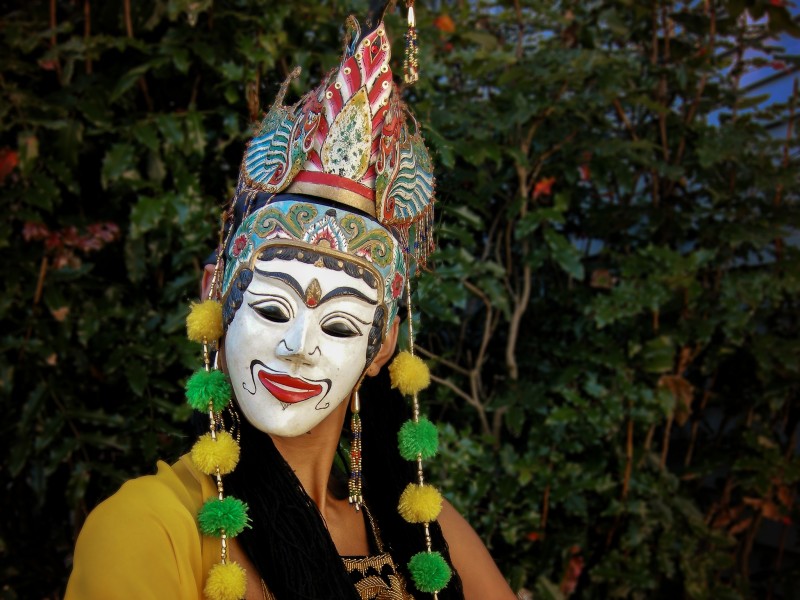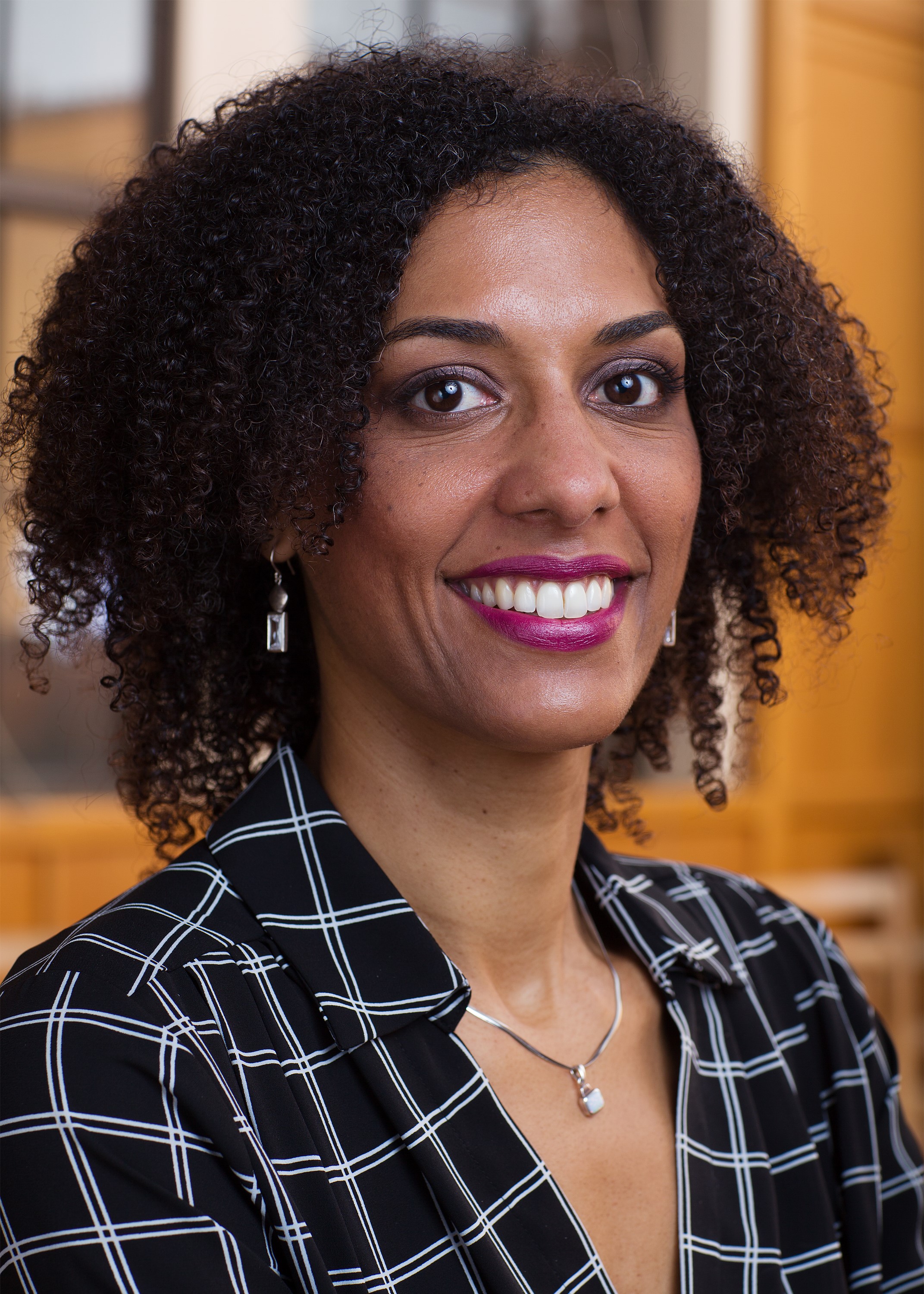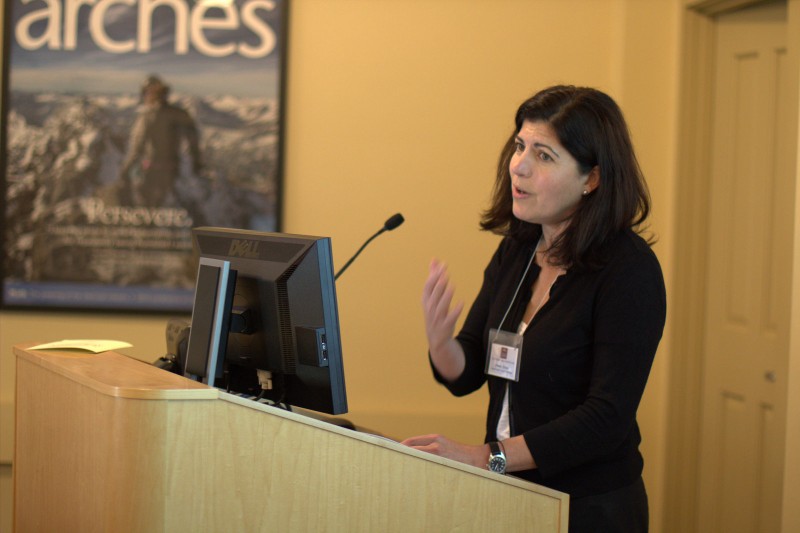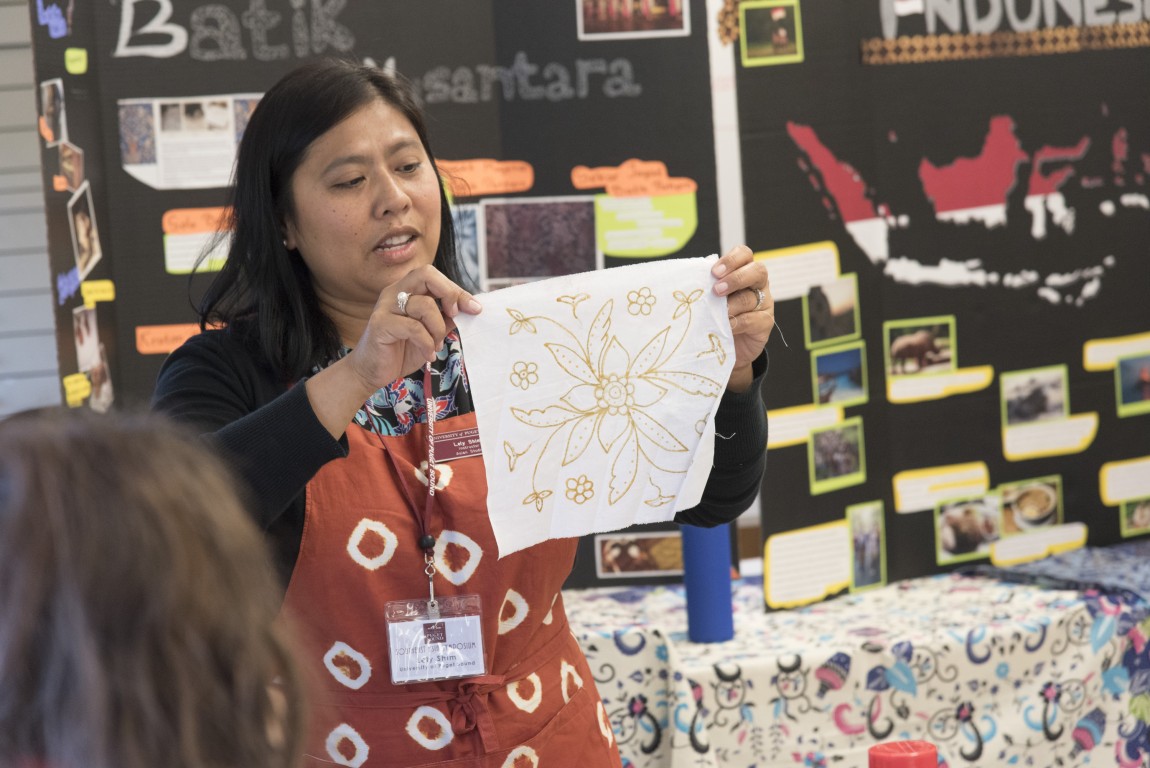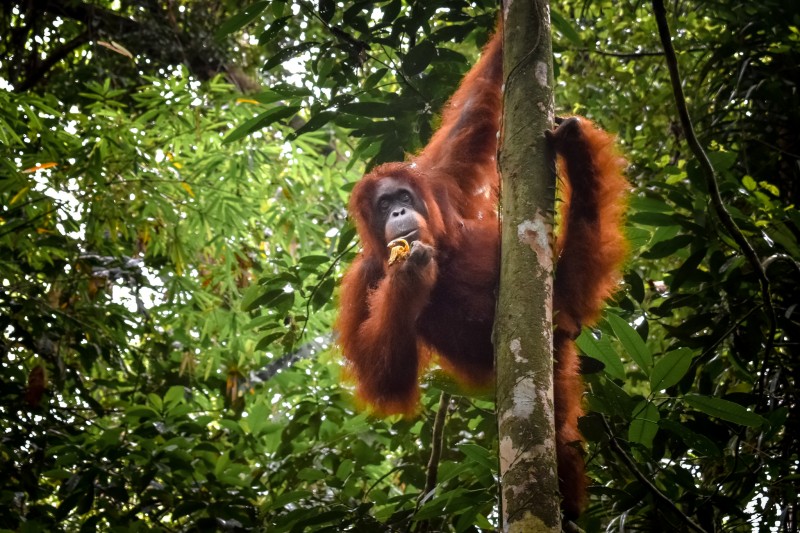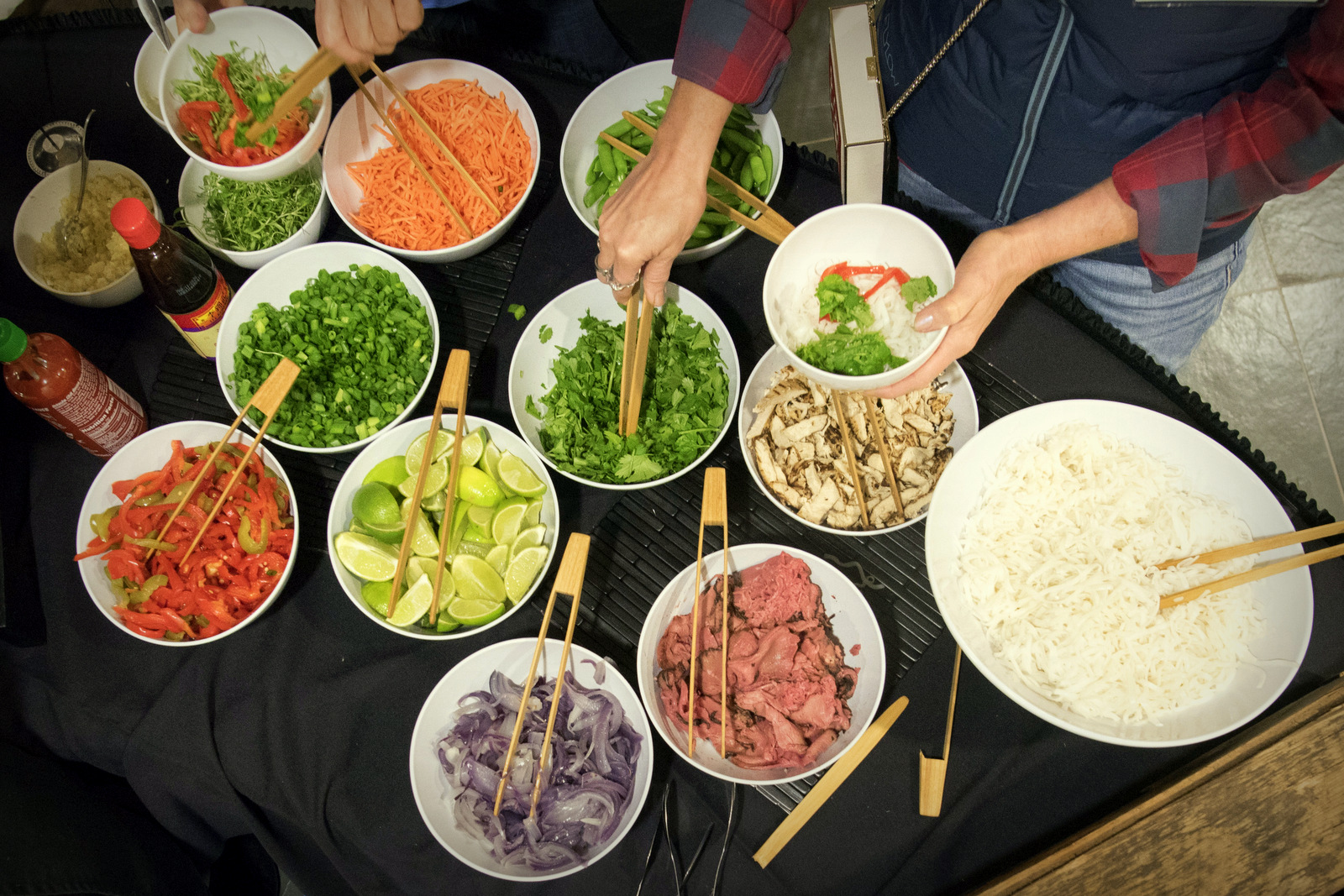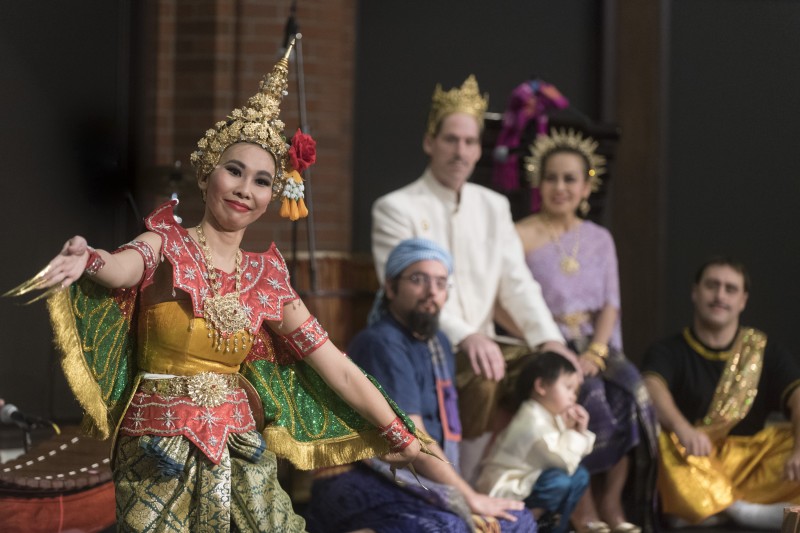Fifth Annual LIASE Southeast Asia Symposium
Conservation and Culture in the Crossroads
October 19-20, 2018
Symposium Schedule
| Time | Day 1: FRIDAY 10/19/18 |
| 4pm | Keynote Presentation: "Accessing and Embodying the Magnetic Power of Femaleness Through East Javanese Dance Performance" - Christina Sunardi, University of Washington - in Murray Boardroom |
| 5:30pm | Southeast Asia 'street food' banquet and culture faire in Upper Marshall Hall, Wheelock Student Center. |
| 6pm | Public performance of traditional and contemporary Thai music and dance. In Upper Marshall Hall, Wheelock Student Center. |
| Time | Day 2: SATURDAY 10/20/18 |
| 9am | Batik Workshop in Room K202 Kittredge Hall |
| 10:30am | Pacific Rim Study Abroad Program (PacRim) independent research poster session in Murray Boardroom |
| 11:30am | Light lunch for LIASE and PacRim presenters |
| 12:15pm | "Teaching the Entangled Past and Present: Historical Reflections from the Field" - Nancy Bristow, Henry Luce Southeast Asia Field Initiative Award Recipient, in Murray Boardroom |
| 12:30pm | Student Research Panel 1 in Murray Boardroom |
| 1:45pm | 15 minute break |
| 2pm | Student Research Panel 2 in Murray Boardroom |
| 3:15pm | US-Indonesia Cooperative Service-Learning Presentation: Puget Sound students will report on an innovative collaboration with the Young Southeast Asian Leaders Initiative (YSEALI) and the U.S. Embassy, Jakarta on a service learning project in Indonesia. |
| 3:30pm | Closing remarks |
| 3:45pm | SE/NW Faculty Meeting in Murray Boardroom |
Keynote Presentation: Christina Sunardi
Keynote Presentation by Christina Sunardi: "Accessing and Embodying the Magnetic Power of Femaleness Through East Javanese Dance Performance"
Drawing on ethnographic fieldwork spanning the years 2005-2007 as well as analysis of performance, this talk presents some of the ways in which dancers and musicians in the east Javanese regency of Malang negotiate multiple senses of masculinity and femininity in the Reformation Era (1998-present) both on- and offstage. I contend that male and female performers simultaneously synthesize, contest, redefine, and experience a range of gendered identities, actively affecting—and disrupting—pre-existing conventions of performance, notions of tradition, and assumptions about “male” and “female.” Building on the work of Benedict Anderson (1990) and Nancy Cooper (2000), I explore the perseverance of female power, referring to spiritual power gendered female as “the magnetic power of femaleness” or “magnetic female power.” I argue that by accessing and embodying femaleness through east Javanese presentational dance and its music, female and male performers have maintained the magnetic power of femaleness in the face of a variety of cultural pressures that work to contain, control, and suppress it.
Christina Sunardi is an associate professor in the Ethnomusicology program in the School of Music at the University of Washington, where she has been teaching since 2008. Her interests include performance, identity, spirituality and ethnography in Indonesia. Her work focuses in particular on the articulation of gender through music, dance, and theater in the cultural region of east Java.
Southeast by Northwest Meeting
Southeast by Northwest (SE/NW) is a collaborative association of faculty at smaller Northwest institutions whose research or teaching focuses on Southeast Asia. Its broad goal is to improve Southeast Asian studies in the region by fostering collaboration and the sharing of ideas, connections, and resources. The group was founded with a Mellon Foundation grant via the Northwest Five Colleges in 2013, and is currently administrated by Gareth Barkin from the University of Puget Sound and Greg Felker from Willamette University.This meeting, which is open to all interested faculty and staff, is focused on continued discussion of SE/NW's goals and priorities, and allowing Southeast Asianists in the region the opportunity to discuss potential collaboration and the sharing of institutional resources. The discussion will focus on resource sharing and collaborations in the areas of professional development, pedagogy, and study abroad.
Batik Workshop
Batik is method of producing textiles and fine art on fabric, originally from Java, Indonesia, using wax relief and natural plant dyes. To make a batik, selected areas of the cloth are blocked out by brushing or drawing hot wax over them, and the cloth is then dyed. The parts covered in wax resist the dye and remain the original color. This process of waxing and dying can be repeated to create more elaborate and vivid designs.
Led by Indonesian instructor Lely Shim, we will conduct a two hour workshop for students and other members of the campus community interested in learning to make their own batik artwork. Participants will create a simple batik on cotton in only two hours using the batik tulis method (hand drawn).
Registration is required due to limited space and materials: CLICK HERE TO SIGN UP.
Student Research Panel 1
Our student research panels feature presentations from undergraduates involved in our 2018 LIASE field school, who studied and conducted research on issues related to a variety of topics connected to conservation in Malaysian Borneo. Their projects involved a semester of study on our campus, with biology and environmental studies professor Peter Wimberger, as well as a three week field program in Malaysia.
| Peter Wimberger | Biodiversity and Conservation in Sarawak, Borneo – An Overview |
| Tiare Gill | Conserving biodiversity and cultural diversity: Land, Sense of Place and Community Involvement |
| Mariah Thompson | The Evolution of NGO Relations with Indigenous Communities and its Effect on Conservation Outcomes |
| Noah Dillon | Protecting Traditional Ecological Knowledge and Biological Resources of Indigenous and Local Communities in Sarawak |
| Becca Simon | Assessing Informal Institutions of Community-Based Conservation in Southeast Asia |
Photo by Becca Simon, 2018 LIASE fieldschool participant
Student Research Panel 2
Our student research panels feature presentations from undergraduates involved in our 2018 LIASE field school, who studied and conducted research on issues related to a variety of topics connected to conservation in Malaysian Borneo. Their projects involved a semester of study on our campus, with biology and environmental studies professor Peter Wimberger, as well as a three week field program in Malaysia.
| Anna Barcus | Oil Palm Certification in Malaysia: Looking at the Roundtable on Sustainable Palm Oil (RSPO) and the Malaysian Sustainable Palm Oil (MSPO) Certification Schemes |
| Marlowe Moser | The Ecology and Conservation of Hornbills in Borneo |
| Meaghanne O’Flaherty | Sunda Clouded Leopard Conservation in Borneo (Kalimantan, Sabah, and Sarawak) |
| Nicki Bouché | The Illegal Wildlife Trade in Southeast Asia: Trafficking of Pangolins and Swiftlet Nests |
| Josh Pi | Environmental Education in Malaysia |
Southeast Asian 'Street Food' Banquet and Culture Faire
This will be an open buffet banquet for all participants and attendees of the symposium, folks who are interested in attending, and attendees of the Southeast Asian cultural performance, which will take place concurrently in Upper Marshall Hall, within the Wheelock Student Union. It will also feature tables from local Southeast Asian cultural associations, displaying arts and material culture from different countries in the region.
Thai Music and Dance, Contemporary & Traditional - Public Performance
We are honored to welcome an array of contemporary and traditional Thai musical groups to the Symposium, including PongLaang RuamJai, The Wayside, and Chaopraya Ensemble. PongLaang RuamJai and The Wayside reflect contemporary and regional approaches and variations on Thailand's musical history. Chaopraya Ensemble was formed in the spring of 2001 with the intent to provide opportunity for the children of Thai immigrants in the Puget Sound area to keep alive and learn about their ancestor’s cultural heritage, especially in music and dance. The ensemble performs Thai classical and folk music on traditional Thai instruments as well as a wide range of dances, from lively regional folk dances to the graceful and stylish court dances.
This performance is open to the whole campus community and the public -- please join us, and grab some Southeast Asian street food while you're at it!


